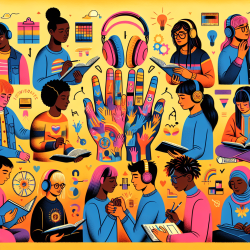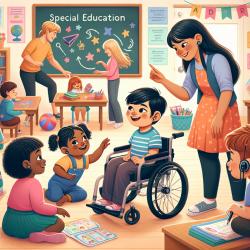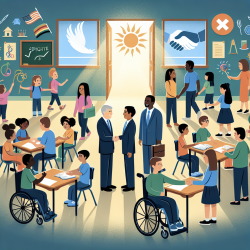Introduction
The Department of Education and Early Childhood Development (EECD) in New Brunswick is dedicated to providing an inclusive and quality education for all students. This commitment ensures that every learner, regardless of ability, is educated within a common learning environment alongside their peers. This philosophy acknowledges the uniqueness of each student and emphasizes the need for flexible curriculum delivery, comprehensive support services, and collaboration among educators, parents, learners, and the community.
Goals and Principles of Inclusive Education
Based on Policy 322 – Inclusive Education, the following goals and principles guide the approach:
- Every student has the capacity to learn.
- Education is universal, with equitable access to the provincial curriculum for all students.
- Programs are individualized, focusing on each student's strengths and needs.
- School personnel must be adaptable and responsive to change.
- Diversity among students and staff is respected and celebrated.
- Education is delivered in an accessible environment where everyone feels welcome and valued.
Implementation of Best Practices
The successful implementation of inclusive education relies on eleven critical areas, including the school learning environment, collaborative planning, administration, and social responsibility. Core practices such as using a multi-tier model of instruction, problem-solving methods, and data-driven decision-making are essential. Monitoring student progress and intervening early are key strategies in ensuring that all children receive effective education.
Personalized Learning Plans (PLPs)
A Personalized Learning Plan (PLP) is crucial for students who require additional support beyond typical classroom instruction. The determination for a PLP is made by the school district superintendent, in consultation with qualified professionals. This plan outlines specific strategies, goals, and educational supports tailored to the student's individual needs. A PLP is considered when a student faces prolonged difficulties and does not progress despite robust instruction and intervention.
The Role of Collaborative Consultation
Collaborative consultation is integral to the inclusive education model. It involves all stakeholders—educators, parents, specialists, and community members—in planning and monitoring programs for students with diverse learning needs. This teamwork ensures efficient service delivery and fosters a shared understanding of each student's needs.
Parental Involvement
Parents play a vital role in the development and implementation of a PLP. They provide valuable insights into their child's needs and are essential partners in the planning process. Regular communication and collaboration with parents help ensure that the educational strategies align with the student's home environment and overall well-being.
Conclusion
Inclusive education in New Brunswick is about more than just access to the same classroom. It's about creating a learning environment where every student feels respected, safe, and capable of achieving their full potential. By embracing diversity and focusing on personalized learning, we can ensure that all students receive the education they deserve.
For more information, please follow this link.










